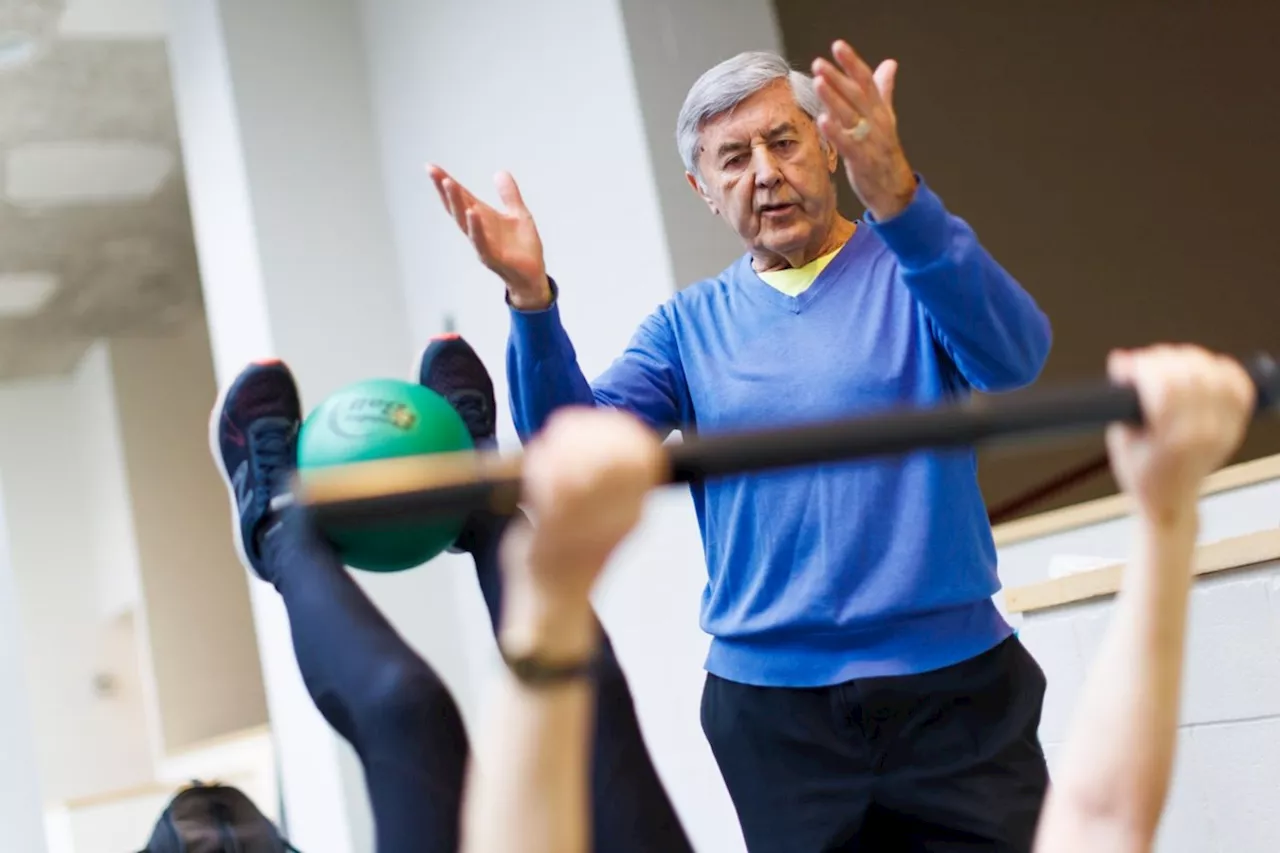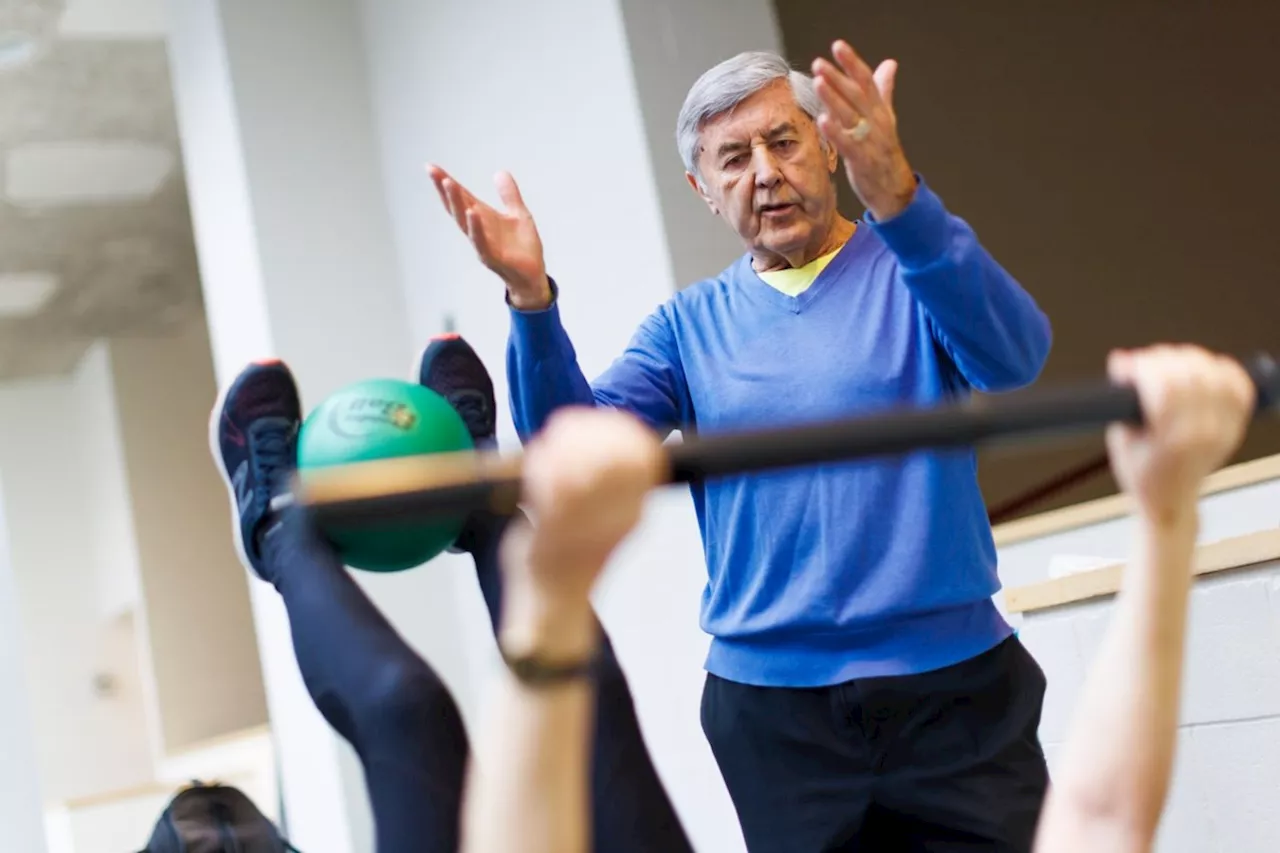A new study published in the Canadian Medical Association Journal emphasizes the vital role of exercise in improving the health and well-being of seniors.
Bob Bursach, an 82-year-old personal trainer from Toronto, has dedicated his career to helping people, particularly seniors, embrace exercise. His oldest client is a remarkable 96-year-old woman who trains with him twice a week. Bursach attributes his own vitality and youthful appearance to his near-daily workouts and finds immense satisfaction in witnessing his clients improve their quality of life through physical activity.
He shares stories of seniors realizing they can get up from a lying position without assistance, a testament to the strength gains they experience. Bursach's experience reflects a growing understanding within the medical community: regular physical activity is crucial for health at every age, including those in their 80s and 90s.A new paper published in the Canadian Medical Association Journal emphasizes this point, advocating for doctors to prescribe exercise more frequently to their oldest patients. Dr. Jane Thornton, the lead author and Canada Research Chair in Injury Prevention and Physical Activity for Health at Western University, explains that physicians often focus on the potential risks of injury for seniors with chronic conditions, assuming frailty or a higher risk of falls. However, the tide is turning, with research increasingly demonstrating the significant benefits of exercise outweighing the perceived risks. Thornton stresses that age, frailty, or functional limitations are not contraindications to physical activity but, rather, reasons to encourage it.The paper compiled the latest research on exercise and aging, providing clear guidance for doctors on incorporating physical activity into their patients' care plans. Thornton and her team highlight that exercise is a modifiable risk factor for over 30 chronic conditions prevalent among older adults, including heart disease, diabetes, osteoporosis, depression, dementia, and cancer. A 2023 meta-analysis reviewed by the team demonstrated that adhering to the World Health Organization's recommendation of at least 150 minutes of moderate physical activity per week reduced the risk of death by 31 percent compared to sedentary individuals. Thornton emphasizes that it's never too late to start exercising, stating that even small increases in activity can significantly improve daily life. She recommends gradual progression for seniors who are new to exercise, emphasizing the importance of starting slowly and increasing intensity over time. While acknowledging potential concerns, Thornton suggests that supervised exercise programs, led by qualified professionals such as kinesiologists, physiotherapists, or exercise scientists, can provide a safe and effective entry point.The paper offers practical advice for doctors on modifying exercises to accommodate individual needs and medical histories. For instance, individuals with osteoarthritis in their hips or knees may benefit from walking with poles or engaging in water activities like swimming or aquafit. For those considered 'frail,' resistance band exercises are recommended. Walking is suggested for people with high blood pressure, while seated exercise bikes offer a safe alternative for fall-risk patients. Thornton underscores the role of exercise in preventing falls through its positive impact on muscle strength, bone density, and balance. She recommends tai chi, yoga, and pilates as excellent options for seniors to enhance balance, which can be practiced at home or in group settings for social interaction. Bursach's approach aligns with these recommendations, emphasizing a personalized approach to exercise. He performs a physical evaluation of each new client, tailoring exercises to their abilities, adhering to his motto: 'train but don't strain.' Leigh Vanderloo, scientific director of ParticipAction, highlights that fear among loved ones can often hinder seniors from exercising. She challenges the societal tendency to equate age with frailty, emphasizing the importance of encouraging active lifestyles for older individuals
SENIORS EXERCISE HEALTH DOCTOR FALLS CHRONIC DISEASES
Canada Latest News, Canada Headlines
Similar News:You can also read news stories similar to this one that we have collected from other news sources.
 Exercise is Key to Health for Seniors, Doctors Urged to Prescribe It MoreA new study highlights the vital importance of exercise for seniors, urging doctors to recommend it more frequently. The study emphasizes that age, frailty, or functional limitations should not be seen as barriers to physical activity but rather as reasons to prioritize it.
Exercise is Key to Health for Seniors, Doctors Urged to Prescribe It MoreA new study highlights the vital importance of exercise for seniors, urging doctors to recommend it more frequently. The study emphasizes that age, frailty, or functional limitations should not be seen as barriers to physical activity but rather as reasons to prioritize it.
Read more »
 Provincial health plans to cover primary care by nurse practitioners: health ministerFederal Health Minister Mark Holland says provincial and territorial health plans will cover primary care provided by nurse practitioners, pharmacists and midwives.
Provincial health plans to cover primary care by nurse practitioners: health ministerFederal Health Minister Mark Holland says provincial and territorial health plans will cover primary care provided by nurse practitioners, pharmacists and midwives.
Read more »
 Provincial health plans to cover primary care by nurse practitioners: health ministerTORONTO — Federal Health Minister Mark Holland says provincial and territorial health plans will cover primary care provided by nurse practitioners, pharmacists and midwives.
Provincial health plans to cover primary care by nurse practitioners: health ministerTORONTO — Federal Health Minister Mark Holland says provincial and territorial health plans will cover primary care provided by nurse practitioners, pharmacists and midwives.
Read more »
 Provincial health plans to cover primary care by nurse practitioners: health ministerTORONTO — Federal Health Minister Mark Holland says provincial and territorial health plans will cover primary care provided by nurse practitioners, pharmacists and midwives.
Provincial health plans to cover primary care by nurse practitioners: health ministerTORONTO — Federal Health Minister Mark Holland says provincial and territorial health plans will cover primary care provided by nurse practitioners, pharmacists and midwives.
Read more »
 Provincial health plans to cover primary care by nurse practitioners: health ministerTORONTO — Federal Health Minister Mark Holland says provincial and territorial health plans will cover primary care provided by nurse practitioners, pharmacists and midwives.
Provincial health plans to cover primary care by nurse practitioners: health ministerTORONTO — Federal Health Minister Mark Holland says provincial and territorial health plans will cover primary care provided by nurse practitioners, pharmacists and midwives.
Read more »
 Provincial health plans to cover primary care by nurse practitioners, pharmacists and midwives: health ministerFederal Health Minister Mark Holland says provincial and territorial health plans will cover primary care provided by nurse practitioners, pharmacists and midwives.
Provincial health plans to cover primary care by nurse practitioners, pharmacists and midwives: health ministerFederal Health Minister Mark Holland says provincial and territorial health plans will cover primary care provided by nurse practitioners, pharmacists and midwives.
Read more »
